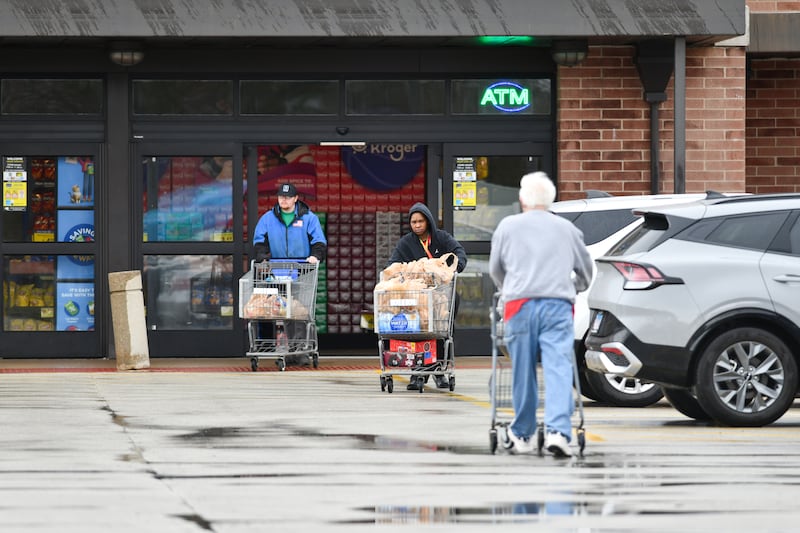BOURBONNAIS – Like many other communities in Illinois, Bourbonnais is dealing with the state phasing out the annual grocery tax funds on Jan. 1, 2026.
State legislators approved Gov. JB Pritzker’s request to eliminate the 1% grocery tax.
In August 2024, Pritzker signed legislation eliminating the tax. The state became the 38th to get rid of its grocery tax.
Pritzker had proposed eliminating the state’s 1% sales tax on groceries as part of his 2025 budget plan, saying the tax was regressive and hurt low-income Illinoisans.
Bourbonnais receives $750,000 in sales tax funds annually from the state.
Mayor Jeff Keast knows how important those funds are for Bourbonnais’ annual budget.
“The grocery tax is a very important revenue component of the village budget. It has been in place since the early 1990’s,” Keast said Tuesday. “This is a significant portion of revenue and without it, it would deeply impact public services provided by the village.”
However, the state gave municipalities the option of enacting the 1% grocery tax by ordinance.
Finance Director Tara Latz said Bourbonnais is not the only municipality adding the sales tax.
“One thing to note is that as of early May, almost a month ago, there have been 163 communities throughout Illinois that have already implemented this replacement grocery tax,” Latz said.
Rebate program
There was a second ordinance on its first reading Monday which dealt with the village adding a 1% sales tax with funds collected being used to rebate the village’s portion of a single-family homeowner’s property tax bill.
Once again, the legislature last year gave non-home rule municipalities the opportunity to impose the tax via an ordinance rather than through a referendum.
The village tried two times to raise the 1% sales tax via referendum. Both were voted down.
The 1% increase on the sales tax bump would increase Bourbonnais’ current rate of 6.25% to 7.25%. In the business district, the total would go from 7.25% to 8.25%.
Keast said there are two key components of the non-home rule sales tax:
First, this tax does not apply to groceries, prescriptions, medical appliances, and titled goods such as cars, boats or RVs, Latz said.
“If approved, this tax would not come into effect until Jan. 1, 2026,” Latz said. “With our research, we have found at least 20 other communities within a 60-mile radius of Bourbonnais that already have a non-home-rule sales tax.
“Also, our neighbors - Bradley and Kankakee - already have similar taxes. Therefore, our total tax rate in the village of Bourbonnais would be on the same level as theirs.”
“In exchange for the sales tax, the village board is committed to a residential property tax rebate program,” Latz said.
The second key point, Latz said:
“This means that the village portion of a homeowner’s property tax bill could be rebated back to them after an application process, which is something that we will have to spend some time developing over the next coming months.”
During last week’s village Finance Committee meeting, Administrator Mike Van Mill said it is important to Bourbonnais property owners to know neither the grocery tax nor sales tax will be a direct tax on them.
“While the village is looking to pass these, this isn’t an actual tax on them,” Van Mill said. “While these taxes affect our residents, they also affect anybody who spends money in Bourbonnais, whether they live here or not.”
When it comes to the 1% sales tax increase, Van Mill said it is important what the benefits are for homeowners in the village.
The average savings for a homeowner would be between $160 and $180, he said.
“It’s important to emphasize the board is very much committed to having a property tax rebate program for homeowners,” Van Mill said.

:quality(70)/author-service-images-prod-us-east-1.publishing.aws.arc.pub/shawmedia/56d71ceb-065f-4b89-a313-e8a4268a29ca.png)